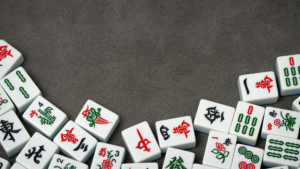Opportunities and Pure “Luck”

In today’s world, we are taught to believe that there is no “luck” or “misfortune” in life, and that believing in such would be a denial of free will. These opportunities and “misfortunes” would result only from an appropriate (or inappropriate) use of effort, willpower, professional competence, and an intelligent vision of situations.
However, an objective observation of the life paths of various people points in a somewhat different direction. It is often noted that it is not enough to be hardworking, wilful, competent, and intelligent to achieve what one wants in life. Sometimes, a bit of “luck” is also necessary, that is, the convergence of favourable
circumstances arising at the right moments. Or, conversely, the undesirable “misfortunes” that occur at the worst times.
This is where traditional divinatory sciences make a difference, as they are based on the assumption that it is possible to predict, with some degree of probability, not only types of behaviour but also the role of circumstances.
This stems from a worldview according to which many of the alleged coincidences that accompany us are not always “pure coincidences” but rather the result of the organic functioning of the Cosmos.
At least that’s what the Stoic philosophers of Greece argued to some extent, with their concept of sympatheia (συμπάθεια), and the Chinese philosophical school around the work Huainanzi (淮南子), from the Han dynasty in China, with its principle of resonance/sympathy between the “Heaven” (the Cosmos) and Man – tianrenganying 天人感应.
It should be noted that, to the best of our knowledge, none of these theses are based on any scientific evidence, at least up to the present moment. It must be taken into account that these traditional systems were developed long before the Scientific Revolution of the 17th century in Europe.